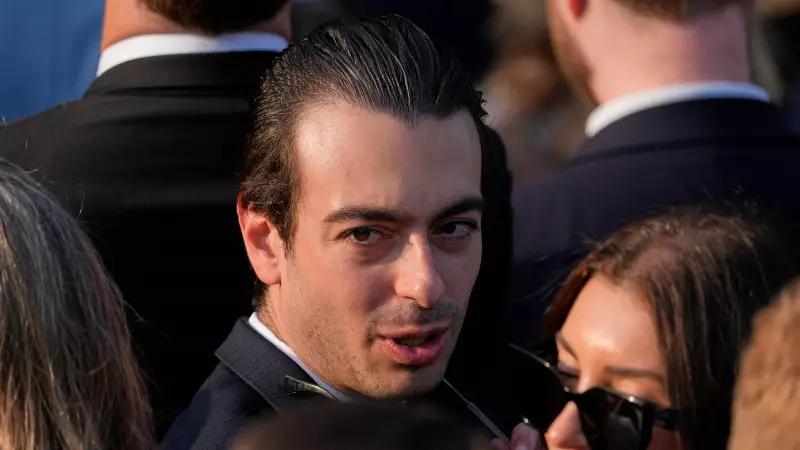
In a dramatic turn of events that has sent shockwaves through political circles, Paul Ingrassia, Donald Trump's handpicked judicial nominee, has abruptly withdrawn his nomination following the explosive revelation of offensive text messages that threatened to derail his confirmation process.
The Unraveling of a Judicial Nomination
The controversy erupted when previously undisclosed text messages from Ingrassia's phone came to light, containing content described as deeply offensive and inappropriate for a prospective federal judge. The messages, which circulated among Senate offices, prompted immediate backlash from both sides of the political aisle.
Sources close to the nomination process revealed that the text messages contained language and sentiments that raised serious questions about Ingrassia's temperament and judgment. The content was deemed sufficiently concerning that several Republican senators expressed reservations about supporting his confirmation.
Swift Withdrawal Amid Growing Pressure
Facing mounting opposition and the near-certain prospect of a contentious confirmation battle, Ingrassia made the decision to withdraw his nomination voluntarily. The move came as a surprise to many observers, though insiders noted that the writing was on the wall once the damaging messages became public.
The withdrawal represents a significant setback for the Trump administration's judicial nomination efforts, particularly as the former president continues to shape the federal judiciary with conservative appointments. Ingrassia had been nominated for a position on the federal bench, a role that carries lifetime tenure and considerable influence over American law.
Political Fallout and Reactions
The incident has sparked renewed debate about the vetting process for judicial nominees and the standards to which potential federal judges should be held. Critics argue that the episode highlights the need for more thorough background checks, while supporters of the administration suggest that political opponents are increasingly using personal communications as weapons in confirmation battles.
Democratic lawmakers were quick to seize on the development, characterizing it as evidence of flawed selection criteria. Meanwhile, Republican leaders have remained largely silent on the matter, suggesting internal discomfort with the circumstances surrounding the withdrawal.
Broader Implications for Judicial Nominations
This incident occurs against the backdrop of an increasingly polarized judicial confirmation process, where every nominee faces intense scrutiny. The Ingrassia withdrawal serves as a stark reminder that in the digital age, past communications can resurface with devastating consequences for political appointments.
The episode also raises questions about the future direction of judicial nominations as the political landscape continues to evolve. With the balance of the federal judiciary remaining a key battleground between competing political visions, the scrutiny applied to nominees is likely to intensify rather than diminish.
As the dust settles on this political drama, attention now turns to who might replace Ingrassia as the administration's preferred nominee and what lessons will be learned from this very public collapse of a judicial nomination.





